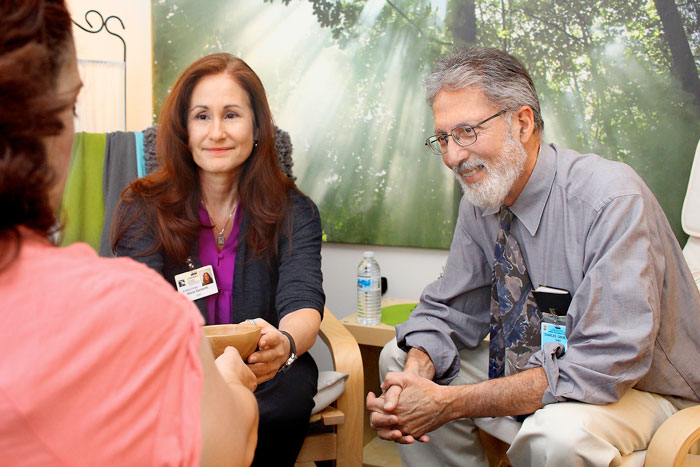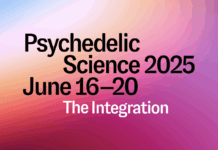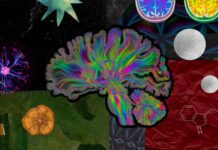When we began our pilot study of MDMA-assisted therapy for social anxiety in autistic adults, my biggest fear was that, in desperation to make contact, a parent might give their non-speaking child ecstasy and cause them harm after seeing misleading headlines in the press. My first career was in journalism. I had produced medical education television programs, so I had a heightened awareness of the pros and cons of working with media covering science.
Carelessness in the media on the part of both journalists and researchers is a threat to the credibility of the science that is serving as a foundation for the gradual and judicious reintroduction of psychedelic medicines into the mainstream in the West. In my experience over the past dozen years, with notable exceptions, working with the media eager to cover the so-called “psychedelic renaissance” has felt more like damage control and running interference to protect the science than a collaboration to share knowledge in responsible ways with the public.
Back in 2013, we phoned researchers Michael and Annie Mithoefer for advice before Charles Grob and I committed to launching a new MAPS-sponsored study the Los Angeles Biomedical Research Institute at the Harbor-UCLA Medical Center. At first, I thought they might be joking when they told us that issues concerning working with the media had been their biggest ongoing frustration. I get it now; as it turns out, navigating media requests while protecting the interests of science, drug development, and psychotherapy has been a difficult balancing act at every phase of our research.
Before our protocol was even approved, articles began appearing online with headlines such as, “Can Ecstasy Combat Autism?” and “MDMA in Ecstasy May Soon Be a Treatment for Social Anxiety and Autism.” One of the most important messages we wanted to convey to the public was that we were treating social anxiety and that we were not treating or attempting to alter the course of autism. Journalists often absolved themselves of responsibility for the sensationalistic headlines that their editors created to grab attention, which left us feeling exploited and guarded. Even worse, we were concerned about how inaccurate messages could harm the autism community by encouraging ecstasy use in unsafe settings and by perpetuating false stereotypes about autism.
We declined requests for videotaped interviews with subjects, including requests to tape sessions in the treatment rooms, before anyone was even enrolled. Understandably, media professionals want to reach their readers and viewers with compelling first-person accounts from study participants. However, hearing endorsements of the study effects in advance of treatment could result in confirmation bias, which occurs when someone draws conclusions about new evidence based on existing beliefs. Other considerations, in addition to engaging the public, must be taken into account for the well-being of study participants and to avoid damaging the integrity of the data.

Image 1. Alicia Danforth and Charlies Grob in the MDMA-assisted therapy treatment room at LA Biomed
The Competing Priorities of Science, Drug Development, and Psychotherapy
As if juggling the sometimes-conflicting interests of psychedelic science and drug development was not difficult enough, adding psychotherapy into the mix results in an even greater level of complexity and ambiguity regarding public disclosure in the media. Examined independently, the priorities set forth in each domain are worth safeguarding, even though they sometimes come into conflict:
Science for Science’s Sake:
The primary goal of experimental science is the diligent and rigorous application of the scientific method to test a hypothesis. Science generally eschews advocacy. Investigators strive to maintain the integrity of the data in order to strengthen the basis of claims we make about findings and to preserve the credibility of the scientific record. In research with human subjects, protecting their safety is also a paramount consideration. In theory, scientists aim to conduct objective, impartial investigations of empirical facts while minimizing attachment to particular outcomes.
Drug Development to Improve the Human Condition:
In comparison, drug development involves the implementation of optimal strategic approaches to achieve a more-or-less predetermined goal. Society benefits when developers deliver improved drugs and devices as safely and expeditiously as possible. Drug development advances through the creation of a compelling narrative about the relative risks and benefits of introducing new compounds and devices to the marketplace. Changing the prohibitive scheduling restrictions on psychedelics also requires simultaneously advocating for policy reform.
Psychotherapy Practiced Ethically:
According to the World Health Organization guidelines, considerations related to the well-being of the human subject should take precedence over the interests of science and society.1 In addition, every precaution should be taken to respect the privacy of the subject and the confidentiality of their information.
Except in rare instances, licensed therapists may not disclose confidential information. In addition to maintaining confidentiality, therapists are expected to avoid boundary crossings and violations and should not enter into unethical dual roles. Inviting research participants to give interviews can challenge these boundaries. As facilitators of psychedelic experiences, investigators have a duty to safeguard the treatment setting as a secure and inviolate space, which sometimes includes protection from media intrusion.
For our study, all participants reviewed a comprehensive written media policy, including potential benefits and risks of giving media interviews. Ample time was devoted to answering any questions they had, and every effort was made to help them make informed decisions.
Good science advances slowly, and the outcomes often lack pragmatic, tangible value. Drug development can move too quickly due to market pressures and can result in products of questionable effectiveness and safety. Regarding psychotherapy, even when study therapists are practicing ethically, their priorities of attending to safety and confidentiality might not always align with a research participant’s desire to engage with media in ways that could expose them to unintended harms.
Sharing Too Much Too Soon
When clinical science is practiced with adherence to the highest standards, investigators refrain from sharing findings with reporters or speculating in detail about outcomes in interviews until all the data are gathered. Ideally, final results are not revealed until publication in a journal after rigorous peer review. On a strategic level, researchers can avoid getting scooped by limiting the information they share early on. Private and institutional ambitions aside, a more important reason to avoid sharing research intentions and findings prematurely is to prevent biasing the outcomes. Responsible researchers analyze vulnerabilities to both researcher and subject bias in their methods and take steps to mitigate the influences of those biases on the findings. Dozens of types of research bias can have adverse effects on basic and applied science. As a result, there are compelling reasons to share as little information as is necessary prior to collecting and analyzing the data.
For clinical trials with psychedelics, managing media requests is distracting because there is constant interest in hearing the participants’ stories and a tendency to sensationalize reports to attract an audience. Giving interviews can require a significant amount of time and effort during periods when investigators need to prioritize conducting the research. I once spent an entire weekend drafting a five-page critique of an inaccurate and potentially harmful story in the fringe media. However, at every step, I recognized the compelling need to share enough to generate ongoing support and to help manage key safety messages. As a compromise, I adopted a “less is more” approach in terms of the number of interview invitations accepted and the amount of information shared.
In contrast, drug developers, especially non-profit organizations who are dependent on private funding, have powerful incentives to share information early and often in order to maintain support. Informing the public is essential to fundraising and policy change. In the absence of government and industry funding, if developers do not share enough information to generate interest, the funds will not be available to conduct the research. A concurrent consideration for psychedelic research is influencing public opinion by presenting balanced information about relative risks and benefits while also influencing the policies of regulatory agencies that limit access to controlled substances.
The pressure to share information can be almost constant, but psychotherapists who facilitate psychedelic research do not share information about the subjects in their care with the public unless those individuals decide independently that they want to tell their stories. In their ethics code, the American Psychological Association states that psychologists have “a primary obligation and take reasonable precautions to protect confidential information obtained through or stored in any medium …”2 Research participants are often vulnerable, but also autonomous, and can give consent for interviews with them and grant permission for the researchers to discuss details of their study participation with the media. However, predicting and planning for all potential consequences, such as regretting the permanence of statements and images that remain online indefinitely, can be difficult.
The temptation to release media testimonials prematurely for recruitment and fundraising is heavy and often distracting. Researchers are constantly navigating ambiguous ethical territory. For example, a participant might want to give an interview to generate support for the science in ways that could be powerfully healing and meaning-making for them. However, a therapist could have concerns, based on clinical considerations, that media exposure might result in unintended harm or introduce bias into the research process. Is a participant agreeing to an interview because they want to please the researchers for subconscious motives related to the therapeutic relationship? Are they seeking to gain status in the psychedelic community at the risk of skewing findings? Media participation can be beneficial for all involved; however, there are also numerous ways that exposure in the media can interfere with a research participant’s psychological process and the validity of the data. Research therapists need to be prepared to support study participants in making informed choices about interacting with media.
There are no simple answers for these complex considerations. However, there are proactive steps research investigators and sponsor teams can take to develop a solid media policy.

Image 2. The study location at Harbor-UCLA Medical Center (The treatment took place in the corner office in the foreground.)
Recommendations for Responsible Media Engagement:
+ Review a comprehensive list of research biases and discuss bias mitigation strategies (e.g., Pannucci and Wilkins, 2010).3 For example, limit recruitment announcements in drug-interest forums to minimize the likelihood of self-selection bias.
+ Download a copy of the report, “Guidelines for Scientists on Communicating with the Media,” by The Social Issues Research Centre and the Amsterdam School of Communications Research.4
+ Write a one-page media fact sheet about your research that includes key points related to safety and other clarifying background information and terminology to forward to media professionals in advance of giving interviews. Help them ask appropriate questions and avoid misleading their readers.
+ Work with your organization’s media liaison, if available. They can often be helpful in vetting media inquiries.
+ Consider granting interviews only with a prior agreement that you will have an opportunity to fact check the content related to your work and statements.
+ If your work is controversial or is likely to be misunderstood by colleagues and the public-at-large, consider publishing a preliminary paper on your rationale and methods to help manage key messages (e.g., Danforth et al., 2016).5
+ Ask to review examples of other work the media professionals who approach you have written or produced. Also, confirm when and where they intend to publish or distribute information about your research.
+ Before your study commences, draft a media policy and guidelines document, and require that study participants review and sign it prior to media participation.
+ When possible, sponsors and investigators should agree in advance on when certain types of information will be shared publicly at conferences, in media, and in other public forums.
+ Request that writers advocate for responsible reporting with their editors to prevent sensationalistic headlines and other promotional “click-bait” content that could pose a risk to public safety.
Anyone who cares about the progress of psychedelic science and the responsible use of psychedelic medicines is empowered to contact media professionals to provide feedback when they observe inaccurate or misleading media stories. I am always inspired when I see informed readers swamp the comments sections with corrections in response to inaccurate online stories and forum postings.
Working with writers, documentarians, and other media members can be enjoyable and beneficial for advancing research and promoting psychedelic drug development. Going in prepared with solid policies and guidelines can mean the difference between adversarial aggravation and constructive collaboration.
- World Medical Association, “World Medical Association Declaration of Helsinki. Ethical Principles for Medical Research Involving Human Subjects,” Bulletin of the World Health Organization 79, no. 4 (2001): 373. ↩
- Stricker, George, “American Psychological Association Code of Ethics,” Corsini Encyclopedia of Psychology. ↩
- Pannucci, Christopher J., and Edwin G. Wilkins, “Identifying and avoiding bias in research,” Plastic and Reconstructive Surgery 126, no. 2 (2010): 619. ↩
- US Department of Health and Human Services, “National Commission for the Protection of Human Subjects of Biomedical and Behavioral Research.(1979),” The Belmont Report: Ethical Principles and Guidelines for the Protection of Human Subjects of Research 45 (2013). ↩
- Danforth, Alicia L., Christopher M. Struble, Berra Yazar-Klosinski, and Charles S. Grob, “MDMA-Assisted Therapy: A New Treatment Model for Social Anxiety in Autistic Adults,” Progress in Neuro-Psychopharmacology and Biological Psychiatry 64 (2016): 237–249. ↩
Take a minute to browse our stock:
Did you enjoy reading this article?
Please support Chacruna's work by donating to us. We are an independent organization and we offer free education and advocacy for psychedelic plant medicines. We are a team of dedicated volunteers!
Can you help Chacruna advance cultural understanding around these substances?















